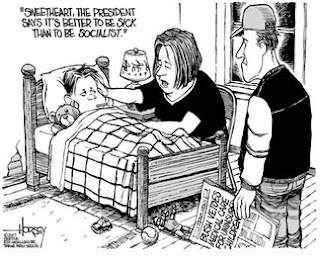
I did my event on Friday May 23. I painted a sort of mural on a poster and then talked to people about it outside The Cheeseboard in Berkeley. A lot of people looked at my mural, but they did not stay to listen. I found that elderly people were more likely to listen to me than younger people so I mostly targeted them. I told people the basic issues with our health care system and then asked them to share what they knew with me. Some people did not know anything about health care while others had person experiences. One man told me about an operation that he had that cost $135,000. Another woman told me about how she cannot get health care for her daughter because her daughter has cancer. The worst part of my event consisted of a man giving a twenty minute (I timed it) monolog about how politics can never get anything done and then taking out his teeth half way through his speech and sticking them in his pocket. I still shudder when I think about it. I had a lot of trouble getting people to stop and listen. In retrospect, I wish that I had brought my petition or a survey so that I could have a better opener. That way, I could inform people about the issue quickly and then go into more depth if the person was willing to listen.
The experience that I had that night was new to me. I have always hated people who try and talk to me about issues and for those few hours, I was one of those annoying people whom I would have ignored. I am a very shy person so it was completely out of character for me to try and talk to complete strangers. On the whole, the experience is one that I would never like to endure again for as long as I live.
The experience that I had that night was new to me. I have always hated people who try and talk to me about issues and for those few hours, I was one of those annoying people whom I would have ignored. I am a very shy person so it was completely out of character for me to try and talk to complete strangers. On the whole, the experience is one that I would never like to endure again for as long as I live.
